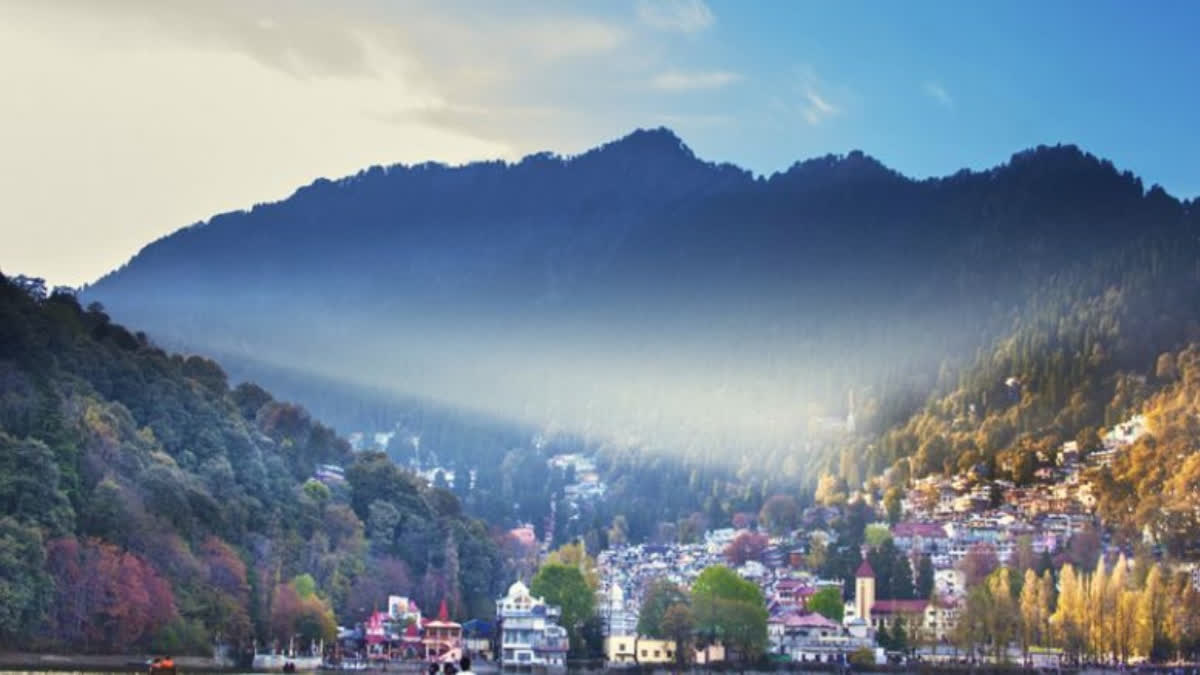New Delhi: As a layer of haze blurred the skyline in New Delhi due to the 'scary AQI level', tourists from Delhi-NCR are rushing to Shimla for respite from the toxic air pollution and in search of fresh air to inhale in serene Himalayan towns.
Many tourists moved to places such as Haridwar to save their lungs from plumes of smoke caused by stubble burning. Others moved to Nainital because of the same reason. The overall AQI of the city stood at 145, as per SAFAR India. Category-wise, the AQI though remained in the ‘moderate’ group, people have been advised to avoid prolonged outdoor visits.
Also read: AAP-BJP slugfest continues as Delhi AQI level shoots up just ahead of Diwali
The air quality in Delhi continues to remain in the ‘severe’ category. Delhi residents woke up to a thick layer of haze on Sunday. The deteriorating air quality was causing breathing issues and a burning sensation in the eyes. On Saturday, AQI spiked beyond 500 in Delhi.
“I am having cough and congestion because of this weather. We do not let our parents come out for a walk in such a situation,” said a local. The visibility was also badly affected due to increased air pollution. “The footfall in Lodhi Garden has decreased drastically because of the weather conditions. I am facing difficulties in breathing. I am coming here in Lodhi Garden for a walk for the last 20 years. However, this year, the condition is worse.”
Amid the rising air pollution in Delhi-NCR, Environmentalist Vimlendu Jha pointed out that the situation was going to get worse. The environmentalist described the situation in Delhi-NCR as scary. Vimlendu Jha spoke to news agency ANI about the measures that needed to be taken to improve the situation. He went on to say that an immediate response was required and suggested measures such as banning construction, odd-even vehicular movement, and restrictions on the use of firecrackers.
Jha said, "The situation is going to get serious. There has been a slight improvement in the last 24 hours due to the movement of air. In the next 4–5 days, the situation is going to worsen. An emergency response needs to be initiated by the central and state governments. A mere sprinkling of water will not give a solution... The air quality crisis in North India, especially in Delhi-NCR, is scary. An immediate response is also needed."
Sprinklers, multivitamins for animals at Delhi Zoo
As the air pollution in Delhi spikes, preventive measures are being taken by the National Zoological Park. National Zoological Park has started sprinkling water frequently in animal enclosures to keep the hydration level up.
Though this was in daily practice, seeing the rising AQI of Delhi, this has become more frequent. Diets with multivitamins are also being given to the animals to prevent the impact of polluted air in Delhi.
Amid rising pollution, Delhi Fire Services sprays water at hotspots
To curb the rising pollution in the national capital, the Delhi Fire Services has joined hands with the Delhi government to spray water at several hotspots, officials said on Sunday. "A total of 12 fire engines have been pressed into service to curb pollution. These fire tenders have already started sprinkling water at different locations which have been identified as hotspots," Atul Garg, Director of Delhi Fire Services, said. Garg said he was hopeful that sprinkling water might be able to bring some respite to citizens.\
A toxic haze lingered over Delhi for the sixth consecutive day on Sunday as pollution levels once again reached the 'severe plus category' due to unfavourable wind conditions, particularly calm winds during the night. The air quality index deteriorated from 415 at 4 pm on Saturday to 460 at 7 am on Sunday, which was later recorded at 461 at 11 am, according to the Central Pollution Control Board (CPCB).
Considering the high pollution levels, Delhi Education Minister Atishi on Sunday announced that primary schools in Delhi will stay closed till November 10.
Taking to social media platform 'X' Atishi wrote, As pollution levels continue to remain high, primary schools in Delhi will stay closed till November 10. For Grade 6-12, schools are being given the option of shifting to online classes.
Earlier, Chief Minister Arvind Kejriwal had announced on November 2 that all government and private primary schools in Delhi will remain closed on November 3 and November 4, in view of the rising pollution levels.
Under the Centre's air pollution control plan, all emergency measures, including a ban on polluting trucks, commercial four-wheelers, and all types of construction, are mandated to be initiated and enforced in the National Capital Region if the AQI crosses the 450-mark.
An AQI between 0-50 is considered 'good', 51-100 'satisfactory', 101-200 'moderate', 201-300 'poor', 301-400 'very poor' and 401-450 'severe'. An AQI above 450 falls in the 'severe plus' category.



